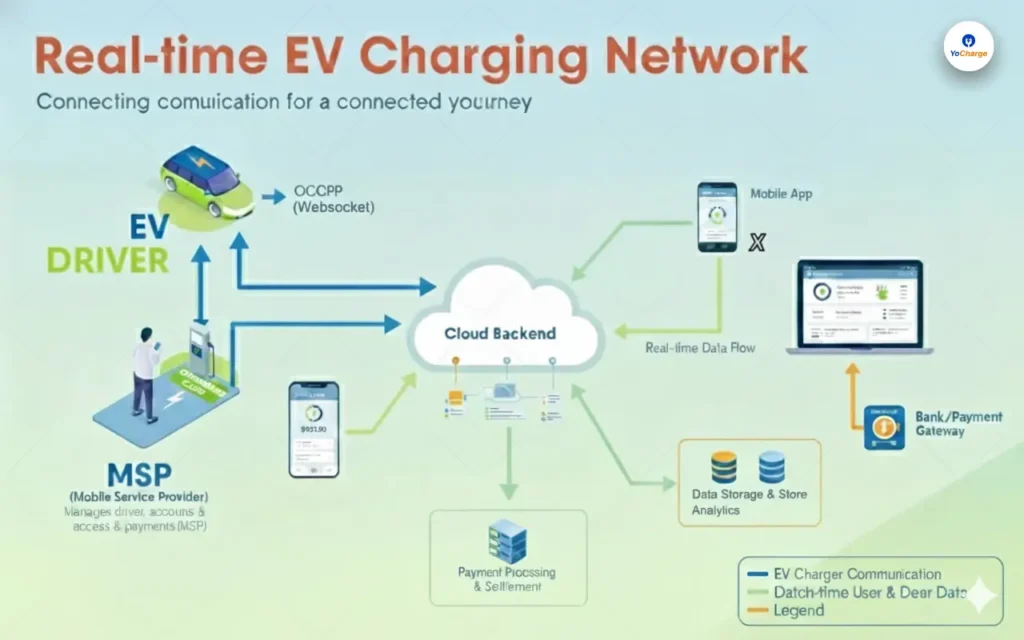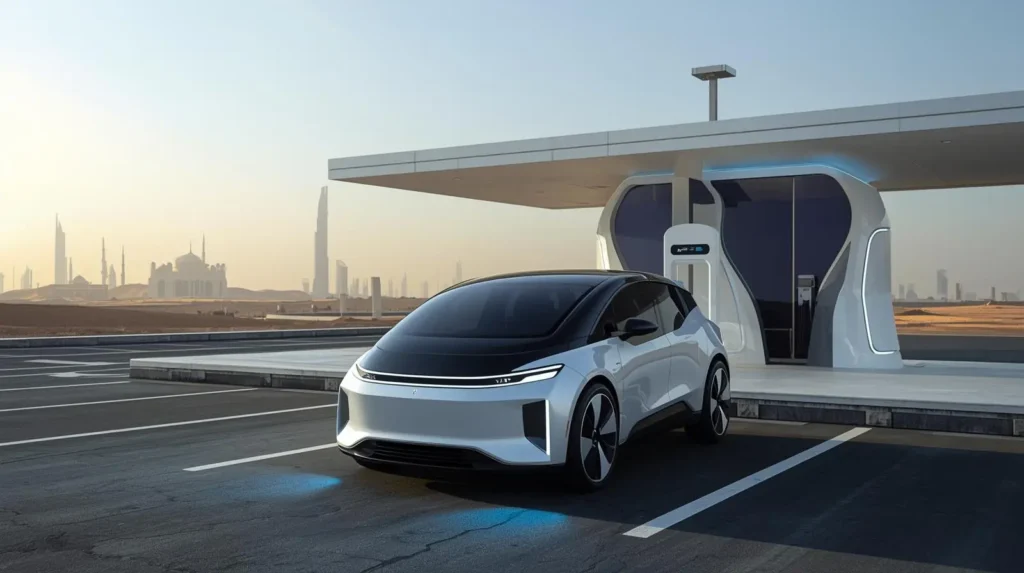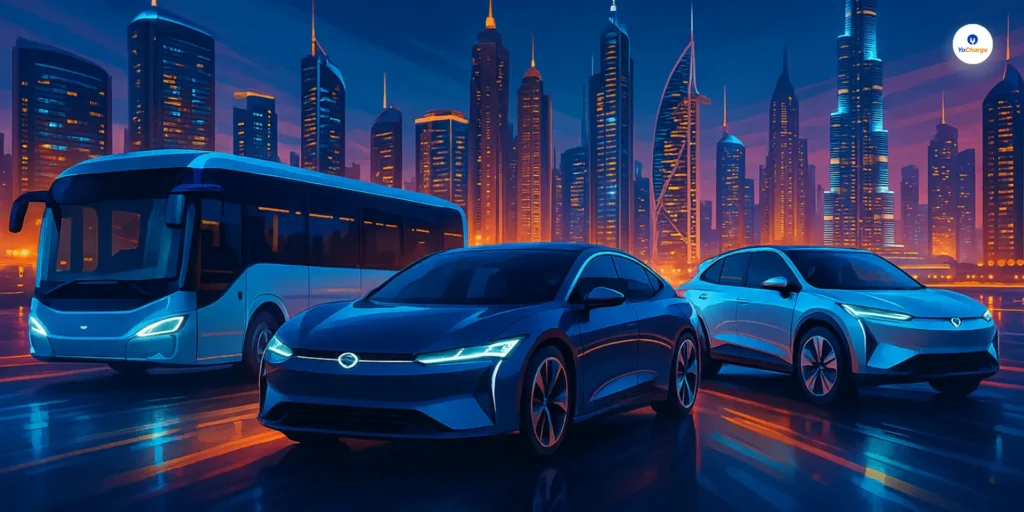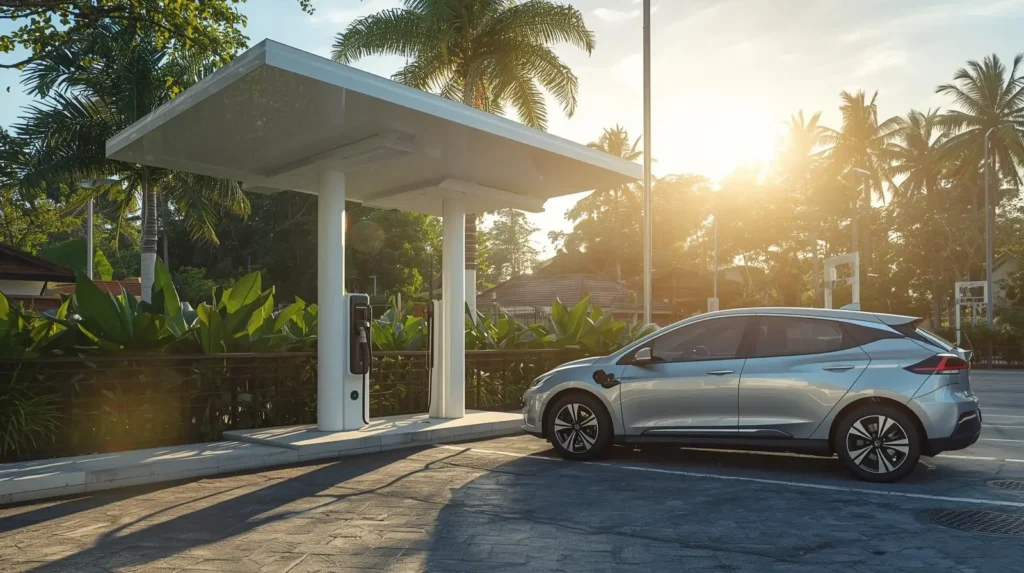
SPKLU tariff & Service fee are the most important determinant of success of your EV Charging Business in Indonesia. The Ministry of Energy & Mineral Resources (ESDM), is the nodal ministry for regulation of EV Charging Business in Indonesia. The ministry, from time to time has come upt with regulations to accelerate development of charging infrastructure and catalyse transition to EVs in Indonesia.
Since 2013, the Indonesian government has been introducing incentives to support xEVs (BEVs, plug-in hybrid EVs [PHEVs], and hybrid EV [HEVs]) through the Low Carbon Emission Vehicle (LCEV) program and Presidential Regulation No. 55/2019, which aims to develop an endto-end EV supply chain.
The Ministry of Industry Regulation No. 6/2022, sets a national target of 600K battery electric four-wheelers (e4Ws) and 2.45 million e2Ws by 2030. According to data from the Ministry of Energy and Mineral Resources, approximately 11 million cars currently on Indonesian roads generate over 35 million tons of carbon emissions annually, which accounts for 70%–80% of emissions in the cities.
EV Charging Infrastructure in Indonesia
Charging technology at SPKLU for four-wheeled vehicles or more includes:
- Slow charging technology ,
- Medium charging technology ,
- Fast charging technology,
- Ultrafast charging technology .
EV Charging Infrastructure in Indonesia comes under two broad categories:

SPBKLU
Stasiun Penukaran Baterai Kendaraan Listrik Umum (Battery Swapping Station)
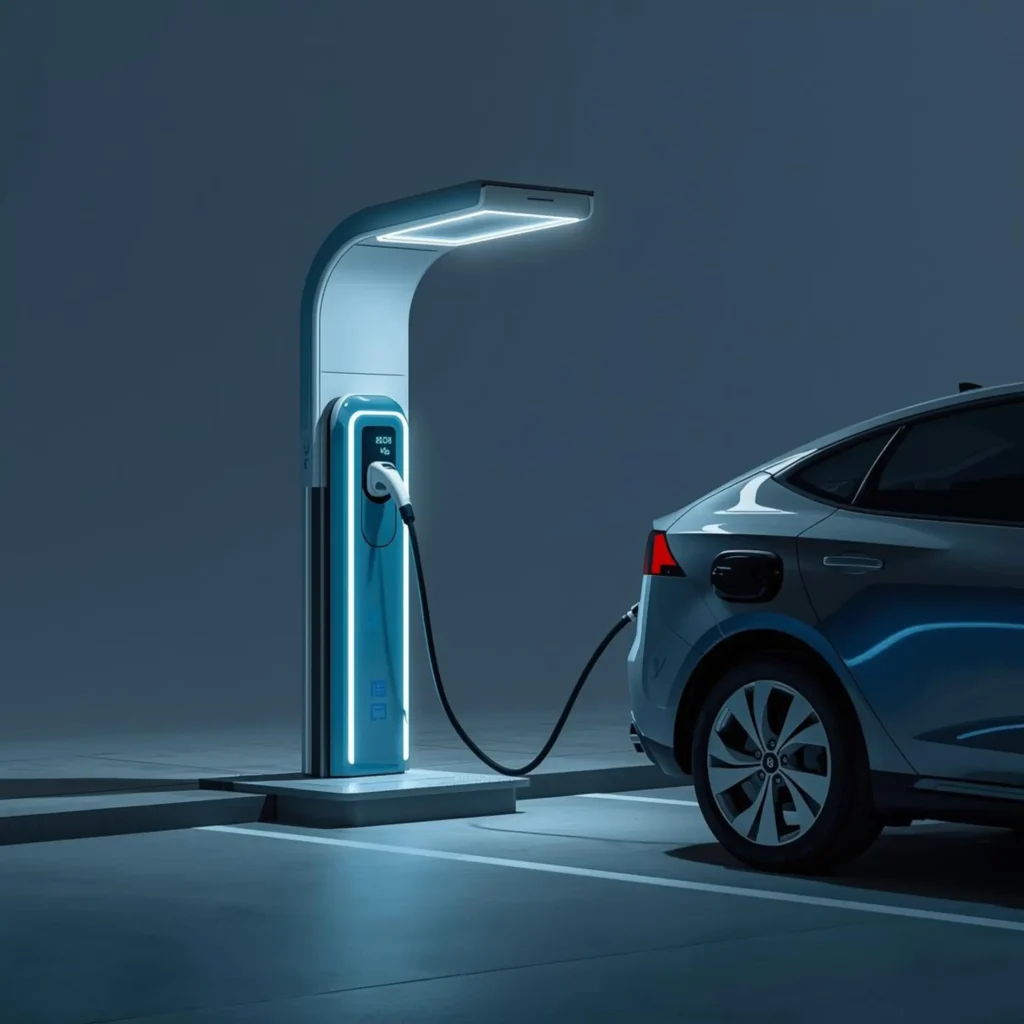
SPKLU
Stasiun Pengisian Kendaraan Listrik Umum (Electric Vehicle Charging Station)
SPKLU Tariff Regulations:
- Permen ESDM No. 1/2023 (amends Permen 13/2020): frames SPKLU business, charging technologies, and tariff basis. It is the umbrella regulation for SPKLU pricing.
- Kepmen ESDM No. 182.K/TL.04/MEM.S/2023: sets the maximum (ceiling) service fee per charging session for Fast & Ultra-fast SPKLU and key implementation rules.
SPKLU Tariff Structure in Indonesia
The SPKLU Charging Tariff in Indonesia is structured into:
- SPKLU Tariff Structure: Energy charge (kWh) + Service fee (per session)
- VAT not included in the stated maxima (PPN applies on top)
A. Per KWh Energy Fee
The Ministry of Energy and Mineral Resources stated that the electricity tariff applied for charging electricity from SPKLU Business Entities to EV users is in accordance with the electricity tariff for special service purposes (L) using a multiplier factor of N of up to 1.5 (Rp 2,466.88/kWh) and is the cost of purchasing electricity or energy charge (kWh).
B. Service Fee Session
The service fee is an incentive for SPKLU Business Entities to continue developing and increasing fast charging and ultrafast charging SPKLUs so that it will make it easier for Station owners to charge electricity and support the development of the Battery electric vehicles (KBLBB) ecosystem.
The Ministry of Energy & Mineral Resources (ESDM) Regulation No. 1 of 2023 (Download PDF) replaced the previous ESDM Regulation No. 13 of 2020, providing updated and more comprehensive guidelines for SPKLU development and operation. According to Kepmen ESDM No. 182.K/2023, the maximum allowable service fees are:
| Charger Type | Max Service Fee (per kWh) | Max Service Fee Per Session |
|---|---|---|
| Fast Charger (22–50 kW) | Rp 933.22 | Rp 25,000 |
| Ultra-Fast Charger (>50 kW) | Rp 1,133.22 | Rp 57,000 |
What does this mean ?
This means that, your applicable service fee depends both Station Power Rating (KW) and your business strategy. As per ESDM No. 1/2023, there is limit both to the maximum overall service fee that you can apply in a session and maximum service fee that you can charge per unit.
Does this mean that, the SPKLU Tariff or EV Charging Tariff is fixed in Indonesia ?
No, while the limits have been sanctioned, each business entity is free to decide the rate within these applicable range. Example – there is a 30 KW Charging station setup by two Businesses Entities – Business A and Business B. As per ESDM No. 1/2023, there are following restrictions that both business need to follow:
– Max Service Fee (per kWh) – Rp 933.22
– Max Service Fee Per Session – Rp 25,000
Now, Business A decides that, they would set Service Fee rate as Rp 500/Kwh meaning they would charge Rp 500/Kwh upto maximum of 25000/500 = 50 Units. However, Business B decides that they would set Service Fee at Rp 250/Kwh, meaning they can charge upto maximum of 25000/250 = 100 Units.
How should Business Entity decide SPKLU tariff Service Fee ?
Business should look at Average Charging Units delivered in each charging session and setup Service Fee accordingly. Example if the average units charged on your 30 KW Charger are around 50 Units then it makes sense to put Rp 500/KWh as the per Unit Service Fee.
How does YoCharge helps in keeping Charging Business Entities Compliant:
At YoCharge, we believe that the future of transportation is electric. Hence, YoCharge provides white-label EV-CMS platform to EV Charging Business Entities in Indonesia that helps them build their Charging Business brands, while staying compliant with applicable policies of ESDM.
Consequently, we donot set does not set your business model or SPKLU Tariff — but we do help ensure that your SPKLU operations stay compliant and reliable to your EV users. We provide
YoCharge is deep integrated with ESDM gatrik portal, meaning your platform is day 0 compliant with session update and information access from gatrik portal. Hence, when you don’t need to create separate stations on gatrik and your YoCharge EV-CMS portal, the information is auto-updated & shared between YoCharge & gatrik.
Our cutting-edge Energy Theft Detection system leverages advanced Machine Learning and AI technologies to protect your revenue and optimize grid operations.
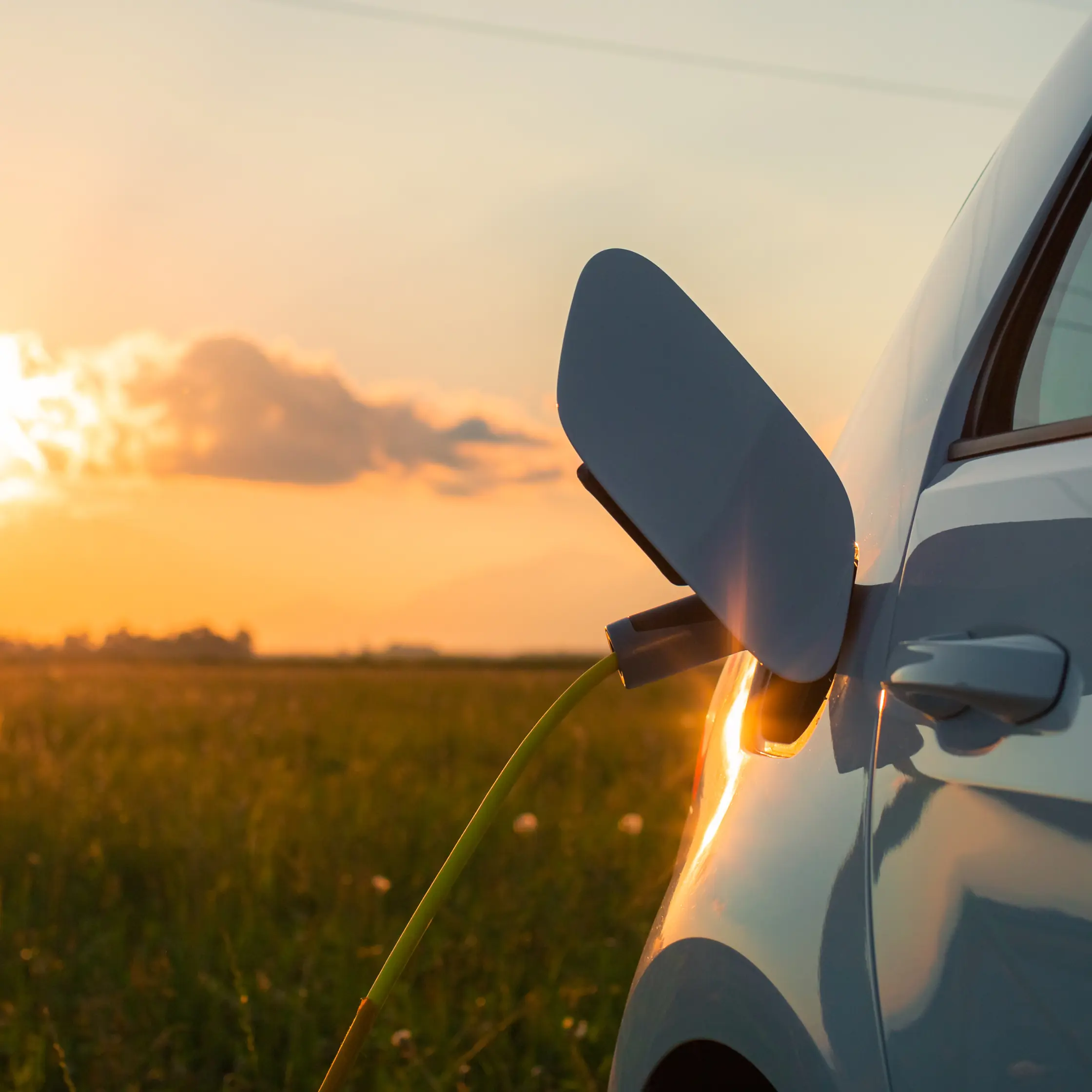
How to Setup EV Charging Tariff in Your EV-CMS Platform
In white-labeled EV-CMS platform by YoCharge, EV Charging Tariffs are handled through the tariff module.
How to Setup, ESDM Compliant EV Charging Tariff in EV-CMS Portal
Step 1: Go to Tariff Management

Go to tariff Management module under Charger Management.
Step 2: Add Base Tariff
As per Permen ESDM No. 1/2023, PLN Electricity Tariff is Rp 2,466.78 / kWh. Hence, accordingly, first set the name of tariff as Electricity Tariff or your custom name. Then in type of tariff, from dropdown select – Energy. Next, in the rate block, put 2466.78 as the rate. Your base electricity tariff is now set.
Step 3: Add Service Fee
The Service Fee you can charge for charging session, depends on the type of charging station as described above and your business strategy. In the additional elements for tariff, please select KWh element. In the name section give name as Service Fee or your custom name. Then in type of tariff, from dropdown select – “Energy”. Next, in the rate block, put your decided Service Fee as the rate. Further, in minimum KWh select 0 (zero) and now in maximum KWh, you have to put KWh number based on your Service Fee & Station type.
Example say your station is Fast Charger for 30 KW, then maximum service fee that you can take is 25000 and also maximum service fee that you can charge per unit is 933.22. Now, if as business strategy, you decide to charge Rp 500 as the Service fee/unit then you can charge maximum upto = 25000/500 = 50 units. Hence, in Max KWh you have to put 50 units.
The SPKLU tariff service fee regulations in Indonesia represent a comprehensive approach to developing sustainable electric vehicle charging infrastructure. Through carefully structured pricing mechanisms, business incentives, and technical standards, the government aims to achieve its target of 24,720 SPKLU units by 2030 while ensuring economic viability for operators and affordable access for consumers. The regulatory framework continues to evolve to address market needs and technological advances in the rapidly growing Indonesian EV sector.
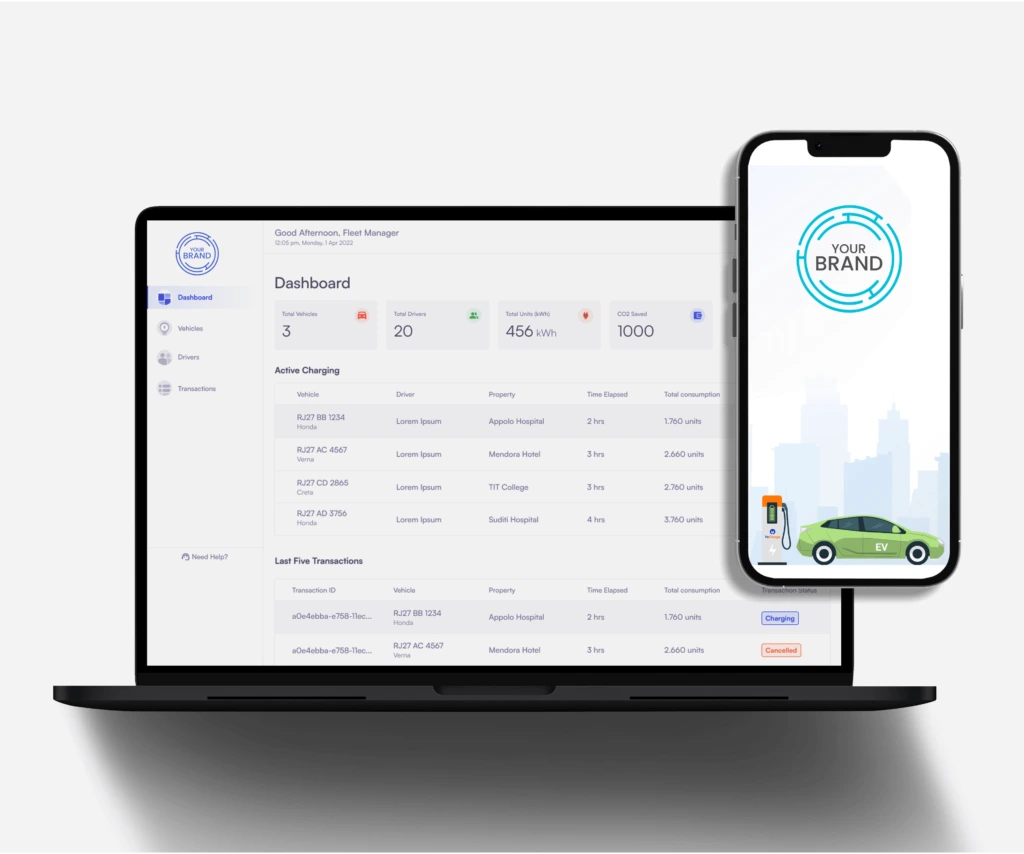
Connect with Us
or
Sources
- Kepmen ESDM No. 182.K/TL.04/MEM.S/2023 (official PDF): ceilings, VAT note, evaluation cycle, transparency/reporting.
- Permen ESDM No. 1/2023 (official): scope, technologies, no service fee for Slow/Medium & 2/3-wheel charging.
- MoEMR news release (31 Jul 2023): plain-language explanation of energy-tariff basis (L × N) and service-fee ceilings. (source)
